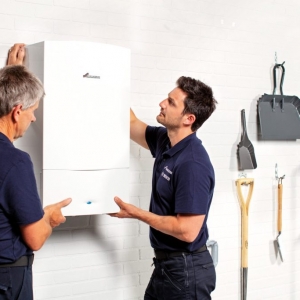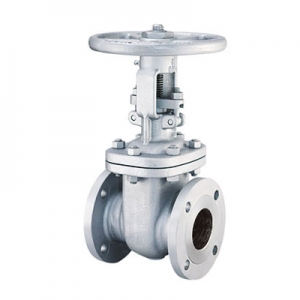Many UK families want to save money on heating. The cost to run heating systems matters a lot. Two common heating options are boilers and heat pumps. But which one is cheaper to run?
This blog will help you understand the costs of both. We will explain the pros and cons. We will also talk about energy bills, efficiency, and savings. Let’s find out which one is better for your wallet and your home.
What is a Boiler and How Does it Work?
A boiler burns gas or oil to make heat. The heat warms water in pipes. The hot water moves through radiators. This makes the house warm during cold months.
Some boilers also give hot water for taps and showers. Most UK homes have gas boilers today. Boilers are strong and heat homes quickly. But they use fuel and make carbon. This can harm the environment. They are cheap to install but may cost more to run over time.
What is a Heat Pump and How Does it Work?
A heat pump takes heat from the air or ground. It then moves the heat into your home. Heat pumps work like fridges in reverse. They use electricity instead of gas or oil.
Heat pumps are good for the environment. They don’t burn fuel and make less carbon. They work best with good insulation. Heat pumps give steady heat, not fast heat. They cost more to install. But they can save you money each year in heating bills.
What Are the Running Costs of a Boiler?
Boilers use gas or oil every time they heat your home. Gas prices often change and go up. Oil can be even more expensive in winter. A gas boiler can cost about £1,200 a year to run.
This cost depends on your home size and insulation. Old boilers waste more energy. Newer ones are more efficient but still use fuel. You must also pay for servicing and repairs. That adds more cost every year.
What Are the Running Costs of a Heat Pump?
Heat pumps run on electricity. Electricity is more costly than gas per unit. But heat pumps are very efficient. They give more heat than the electricity they use. A good heat pump gives 3 to 4 units of heat per 1 unit of electricity.
That means lower running costs in the long term. The average cost to run a heat pump is about £1,000 a year. This cost can go lower with good insulation and smart thermostats.
Is a Heat Pump Cheaper to Run Than a Boiler?
Yes, in many cases, heat pumps are cheaper to run. They use less energy to make heat. Over time, the savings can add up. A heat pump can save around £200 to £300 a year compared to a gas boiler.
But it depends on your home and usage. Homes with poor insulation may not save much. Homes with good insulation see the most savings. The longer you use the heat pump, the more you save.
What About Installation Costs?
Boilers are cheaper to install. A new gas boiler may cost around £2,500. A heat pump can cost £7,000 to £13,000, that’s a big difference.
But the air source heat pump grant UK helped cover 100% cost for heat pumps including installation under the ECO4 scheme. That makes heat pumps more affordable. With help, your cost may be close to installing a boiler. Always check if you qualify for government grants before choosing.
Do Heat Pumps Work in Cold UK Weather?
Yes, heat pumps work in cold weather too. They are made to run even in winter. Air source heat pumps work well down to -15°C. Ground source heat pumps stay steady in all seasons.
Your home must be well insulated to stay warm. If not, the pump works harder and costs more. A backup heater can also help during very cold days. Many UK homes now use heat pumps successfully all year.
How Long Do Boilers and Heat Pumps Last?
A gas boiler lasts around 10 to 15 years. After that, it may stop working well. Repairs can be costly. A heat pump lasts about 15 to 20 years. That’s longer than a boiler.
Heat pumps also need less maintenance. This saves money on yearly servicing. If you plan to stay in your home long, a heat pump may be a better choice. It can give more value over time.
Which is Better for the Environment?
Heat pumps are better for the environment. They don’t burn fuel or release carbon. Boilers burn gas or oil and add carbon to the air. Carbon makes climate change worse. If you want to go green, heat pumps are the way. They are clean, quiet, and safe to use. You also get green home points for using them. This can help if you want to sell your home later.
Are There Any Hidden Costs?
Boilers may seem cheaper at first. But fuel prices keep rising. You also pay for yearly servicing. Heat pumps cost more to install but have lower fuel bills. You may need new radiators or underfloor heating.
These are extra costs. But they help the heat pump work better. Make sure your home is ready for a heat pump. Get a home energy check before buying. That way you won’t face surprises later.
How to Decide Which One is Right?
Think about your budget and home size. A small home may be fine with a boiler. A well-insulated home is great for a heat pump. If you plan to live there long, a heat pump saves more money.
If you need fast heat now and less upfront cost, a boiler may be better. Look at your fuel bills and long-term goals. You can also talk to a heating expert for advice.
Conclusion
Both boilers and heat pumps heat your home well. But heat pumps are cheaper to run over time. They cost more at first but save money every year. They are also better for the planet. Boilers are cheaper to install but may cost more each month.
Think about what works best for your home. Use government grants if you choose a heat pump. Always check your home’s insulation first and consider using the best central heating inhibitor to keep your system running efficiently. Making the right choice can help you stay warm and save money.









